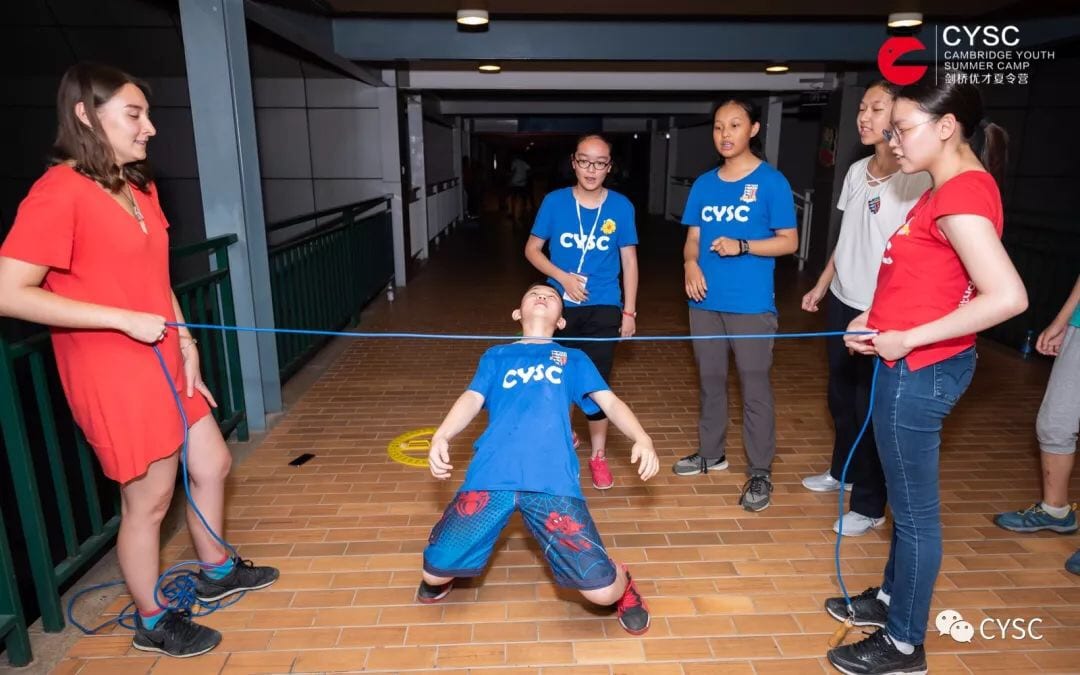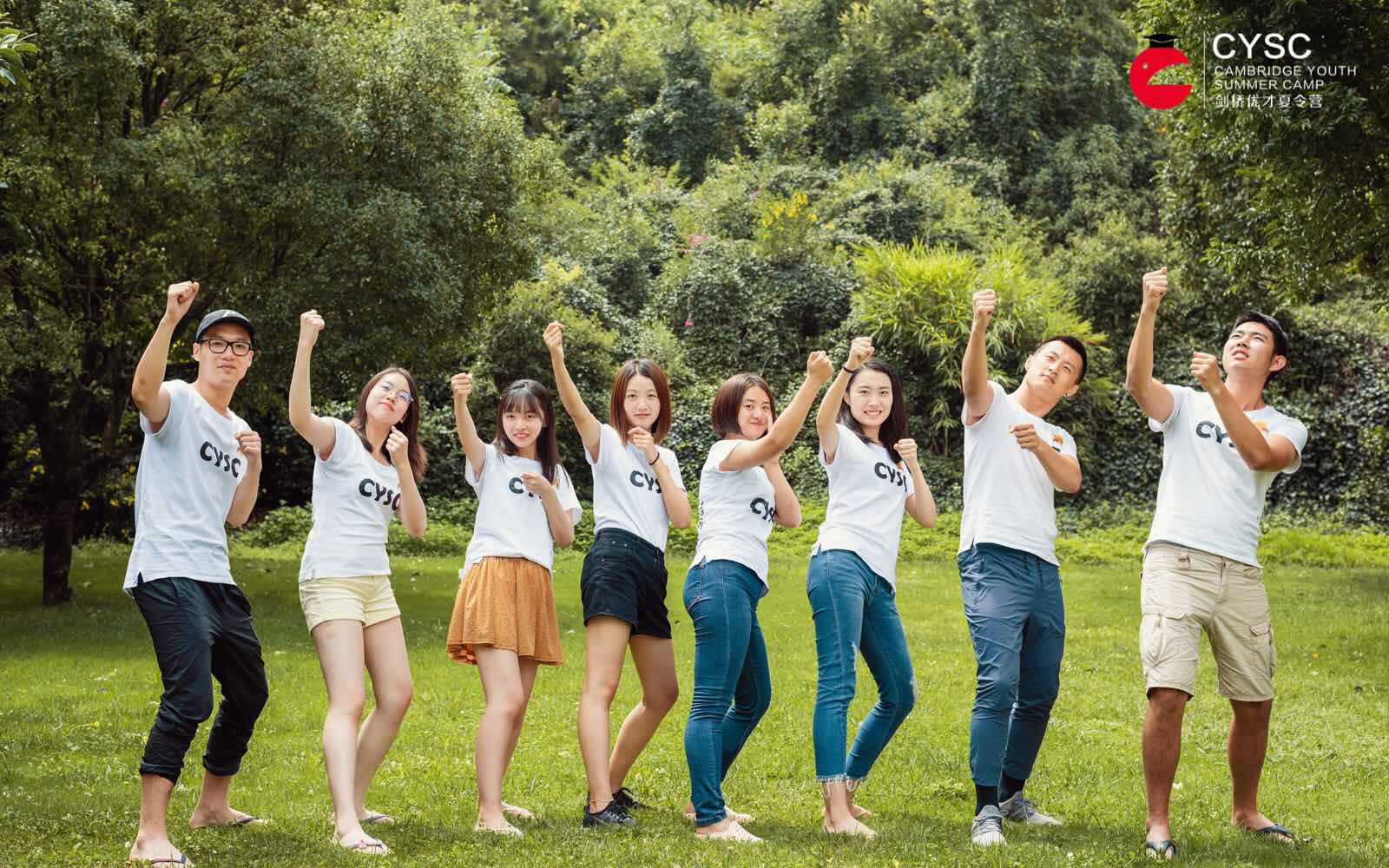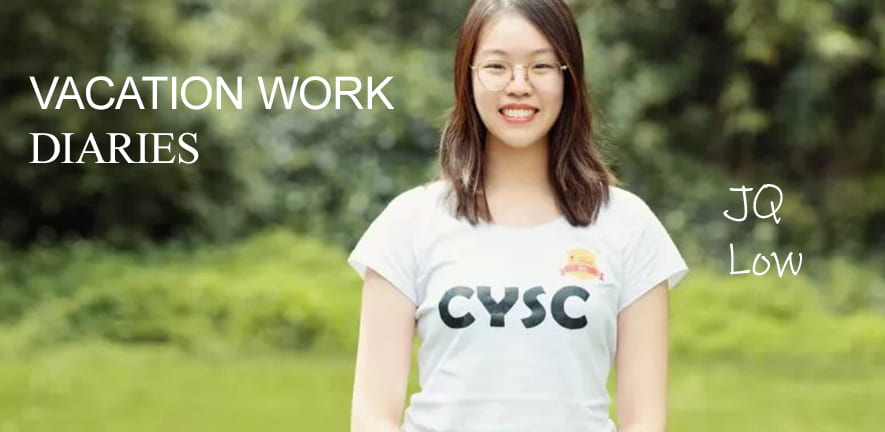We quiz JQ Low, a second-year Law student from Churchill College, on her experience working for Cambridge Youth Summer Camps last year
Tell us about yourself – what do you study, where are you from?
I am a second-year Law student at Churchill College, and I’m originally from Singapore. I speak both English and Mandarin fluently. However, I’ve been studying in the UK for four years now, and my Mandarin is not as good as it used to be. Thus, I was on the lookout for opportunities last summer that would allow me to regain lost ground.
What made you choose to work for Cambridge Youth Summer Camp?
Three things attracted me to volunteering with CYSC: the opportunity to immerse in Chinese culture; the chance to work with children; and the element of giving-back. CYSC was held in Kunming city, Yunnan province. It is an urban but lesser-known, less-touristy part of China, which offers an opportunity to experience Chinese culture differently to what the metropoles like Beijing, Shanghai and Guangzhou offer. In the camp, I interacted on a daily basis with my students, who lived in Yunnan, as well as the Logistics staff, who were studying in top Chinese universities. Through them, I learnt about Chinese contemporary culture, Chinese society, and what makes modern Chinese youth tick. As a bilingual speaker, working as a Tutor at CYSC was also the perfect opportunity for me to revisit my Chinese cultural roots and refresh my communication skills in both English and Mandarin—however, there is no requirement that you speak Mandarin to be involved, as there are roles available for English-speakers too.
we focus on learning through play and growing the students’ confidence in expressing themselves in English
I was also keen to work with children, since they are so open-minded. It is fun to see the world from their perspective and inspiring to see the impact you have as a mentor-figure on their growth and worldview. For instance, I had a philosophical exploration with an 11-year-old on how she thought a basketball game was a metaphor for different attitudes to money! The children attending CYSC range from 11-18 years old, which is incredibly interesting since you are simultaneously an almost-parental-figure and older-sibling-figure to different children at the same time. You can count on the 11-year-olds to bring their adorableness and bags of enthusiasm, and the 18-year-olds to help you keep the team together!
Apart from this, I felt that CYSC was a way for me to give back. Throughout my childhood and adolescence, I had benefitted from several vacation camps that were very similar; hosted by older students, with both academic and team-building activities. Thus, I felt that I ought to give back by continuing to organise these activities for the next generation of children, enabling them to benefit just as I had.

What were your day-to-day responsibilities and what did you learn? What was especially challenging/rewarding about the role?
My job as a Tutor is similar to that of a Summer Camp Counsellor. I mentored, guided and taught the students through the day. I acted as a cultural and language bridge between the students, who were not entirely fluent in English, and the native British Teachers.
Each day at camp can broadly be divided into three sections: morning lessons, afternoon enrichment/Drama, and evening activities. Morning lessons are English classes, structured around interest topics such as Exploration, Ancient Civilisations, and Wildlife Habitats. CYSC is a vacation camp for the students, so we focus on learning through play and growing the students’ confidence in expressing themselves in English. This means that there are no PowerPoint slides, no red-pens-marking-worksheets, only doodles on the blackboard, and a lot of running around the classroom and making noise! Afternoon enrichment is about learning broader life skills through games, such as physics through an egg-drop activity and market economics through a trading activity. The students also use the afternoon for Drama, where they prepare a self-directed, self-written, and self-acted play to present at the camp closing ceremony. The ingenuity of the students’ ideas never fails to disappoint—my students’ play was about Cinderella time-travelling into Hogwarts, and falling in love with Harry Potter! Evening activities are where things get tribal; the students are divided into teams named after Cambridge colleges, complete with their own College cheer. They compete with each other in activities such as Dragons’ Den, Bridge Building and Murder Mystery, all to win the title of Best College. Under pressure, the students’ creativity and potential really shine through. All the above activities are planned by the Teachers with input from the Tutors.

Each section of the day is led by a different group of teachers and tutors, for a different group of students—this means that I worked with a rotational group of students and colleagues for each section of the day, and really got to work closely with everyone in the team. It also presents plentiful opportunities for collaboration and communication. For example, halfway through the camp, I noticed that one of my most energetic and enthusiastic morning students was acting increasingly lethargic. I consulted with the Tutor who took care of her for afternoon and evening activities, and we pieced together that she was staying up late at night on her phone, not getting enough sleep, and this affected her performance in morning lessons. We spoke to the student together and managed to get her off her phone at night back on track in the day.
I was challenged not only in terms of vocabulary, but also tact and sensitivity!
I was also responsible for communicating with the students’ parents via WeChat (Chinese messaging app), updating them on their child’s progress and addressing any concerns they might have. I would collate information from the various team members who interacted with each student, synthesise it and write up a small paragraph—this was really exciting since it made my extra attentive to each student, and I pushed the boundaries of my vocabulary. One memorable parent was surprised to hear the extent of her daughter’s leadership skills during the camp activities, and she engaged in a philosophical discussion with me about parenting styles—I was challenged not only in terms of vocabulary, but also tact and sensitivity!
Do you know what you’d like to do in your early career once you leave Cambridge?
I’m looking to pursue a career as a solicitor in Hong Kong. CYSC has actually inspired me to do this; through CYSC, I realised that I can and love to engage with the economics, society and people of Greater China.
Any plans for summer work this year?
I currently have two law firm vacation schemes lined up for summer. In order to further my interest in China that I built up over CYSC, one of the schemes will be in Hong Kong and the other will be at the China Practice of a Singaporean firm.

